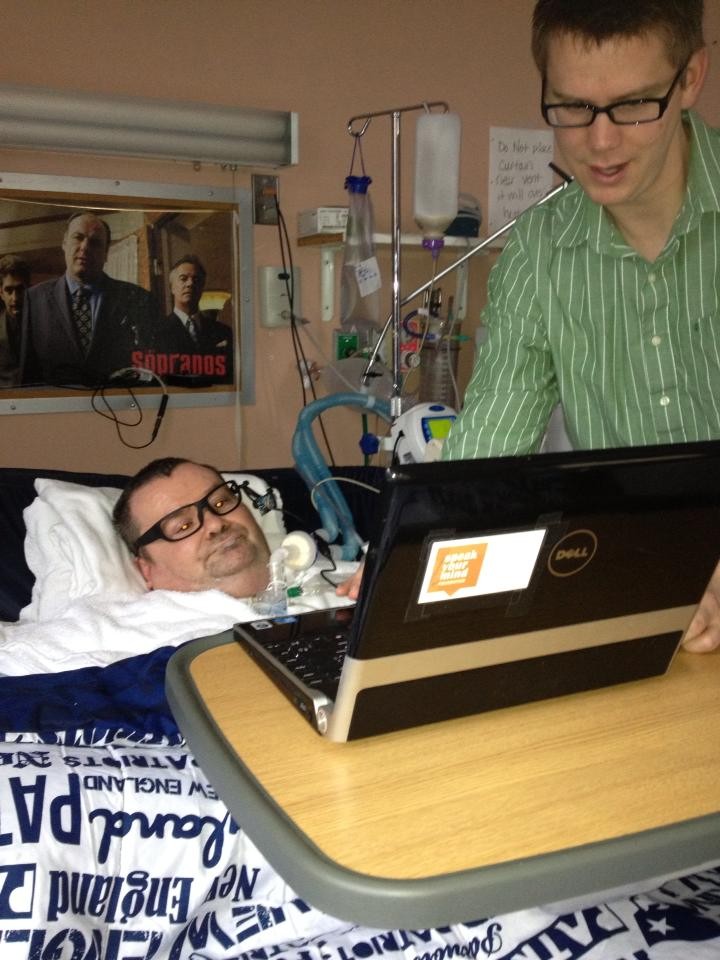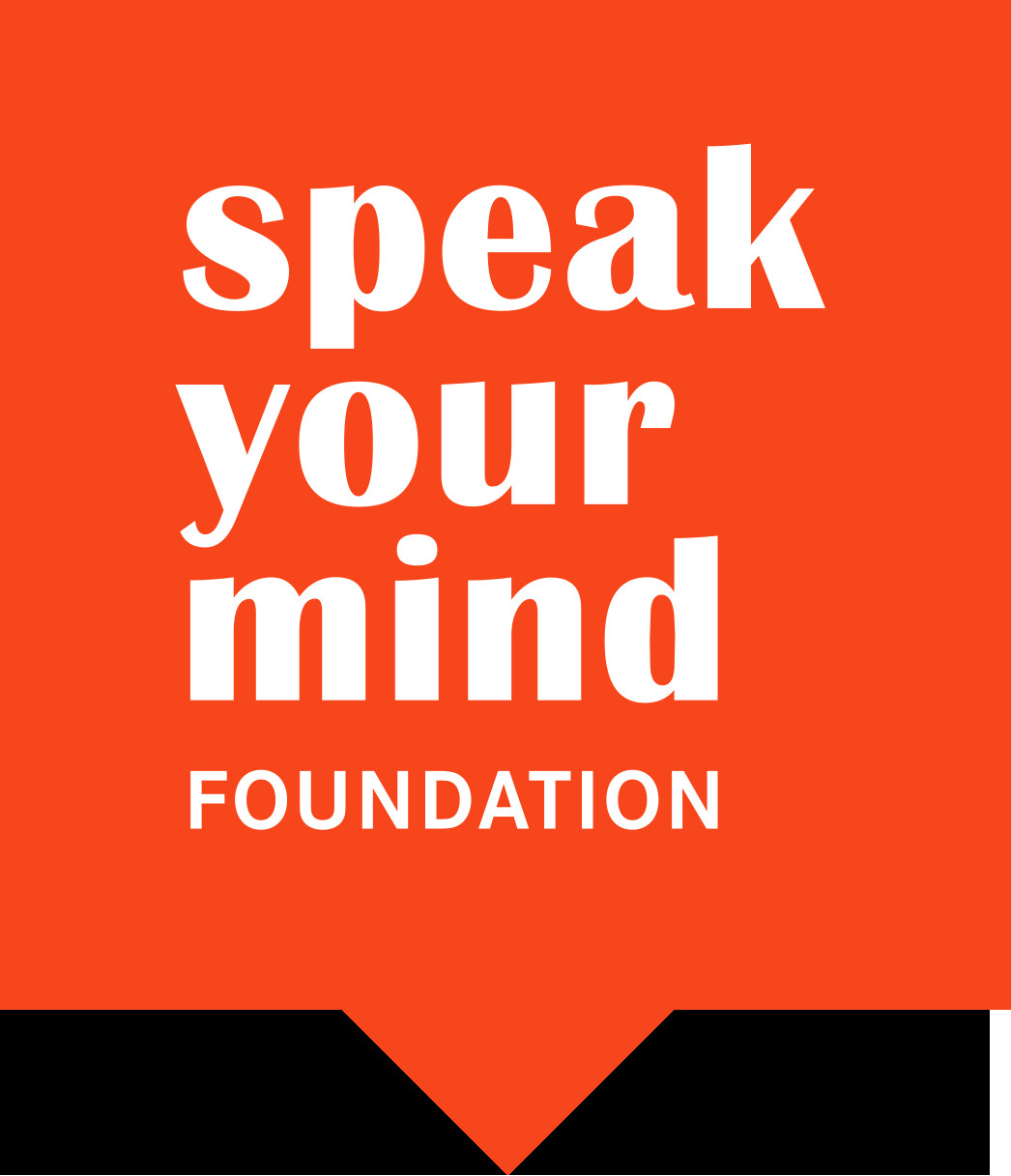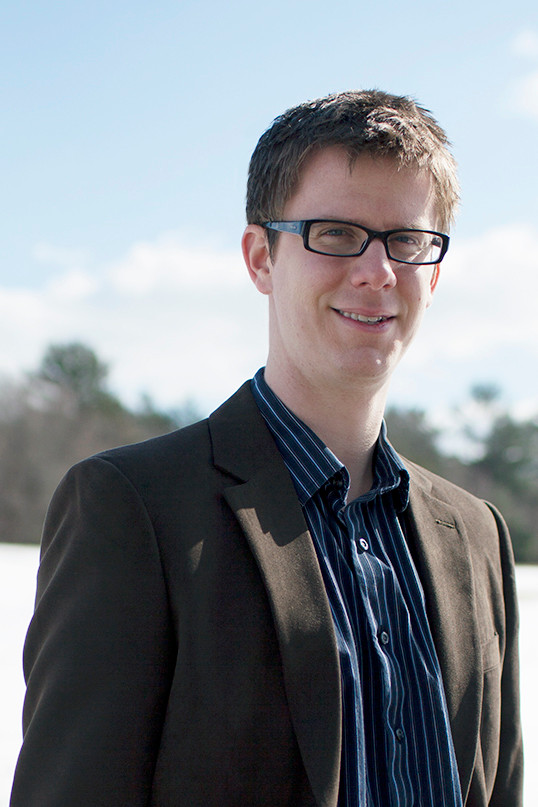New startup seeks to help disabled speak their minds
A bottoms-up, low-tech approach to personalized health care solutions
PROVIDENCE – Dan Bacher reconnects human thoughts, emotions, dreams and ideas. He constructs low-cost solutions, using off-the-shelf technology and open-source software apps, to help people that have lost the ability to communicate to once again be able to share their thoughts and dreams – and reconnect to the world.
In doing so, Bacher, who is a biomedical engineer, software developer, neuroscientist and social entrepreneur, has succeeded in turning the world of personalized assistive communication technologies on its head.
Bacher, who came to Brown University about five years ago to join the BrainGate laboratory working under John Donoghue, is the founder and executive director of a new startup, a nonprofit foundation, SpeakYourMind, a spinoff of BrainGate.
Working with a self-described team of students, engineers, clinicians, designers, hackers, and social entrepreneurs, Bacher creates low-cost technology solutions, helping people with motor and speech limitations reconnect with the world, on a one-to-one, customized basis. It is the epitome of patient-centric, personalized medicine.
In a world where incredible advances in technology make our lives more productive and interconnected, Bacher found that many individuals with communication disabilities have been left out of the conversation – and he set about to engineer a solution.
Bacher recently sat down with ConvergenceRI at Olga’s Cup + Saucer on Point Street to share his story – and his plans to build out his business model through crowd sourcing and a crowd-funding campaign that will launch this week on Dec. 18.
[Neither SpeakYourMind, nor ConvergenceRI, nor Olga’s, for that matter, made it onto the recently published Founders League map of startups, showing that there is a large gap in conversation and convergence around innovative ideas that are disruptive models. Alex & Ani, inexplicably, did make it onto the map as a startup.]
ConvergenceRI: How does your story begin?
BACHER: About four and a half years ago, I came to Brown University, joining the BrainGate lab with John Donoghue, to work on really exciting neuroscience and neurotechnology research, developing medical devices implanted in the brains of people with paralysis, and having them control these devices just with their thoughts.
I was one of the lead engineers developing the hardware and software.
We were working with a patient population, individuals who were, for the most part, unable to speak. Not only was I working on the technology, but I was also watching how patients used the device.
Much of the technology was supposed to enable someone to be able to express themself – but it was really shocking to see that the technology that was available simply wasn’t getting it done.
ConvergenceRI: Can you give an example?
BACHER: Someone [in the later stages] with ALS, Lou Gerhig’s disease, may only be able to move their eyes, communicating through really, really rudimentary methods, such as, I’ll say the alphabet, and when I get to the letter you want, blink or look up, or do something to acknowledge that’s the letter you want. It’s an arduous process.
There are these devices out there, eye-tracking systems that have software, so that using your eyes, you can look at the screen, and identify the letters on your iPad. These devices cost more than $15,000.
Insurance will pay for it sometimes, depending on your coverage. But it may take as long as eight months. You have to have a speech pathologist visit you and evaluate you, then put together the paper work. And, by the time you get the machine….
ConvergenceRI: And, with SpeakYour Mind’s approach?
BACHER: Thinking like an engineer, I [wondered]: With modern technology, you don’t need anything fancy to do a lot of this stuff. We have iPads; we don’t need huge, custom computers. We have off-the-shelf web cams that can do some pretty fancy image processing. All you needed to do is write the software for it.
So, we started doing that – building the lower-tech, low-cost solution, using off-the-shelf hardware. The software took a few weeks to write. [Our product] didn’t have all the bells and whistles that a $15,000 system did, but ours created a highly customized product customized to the needs of the individual – and they worked.
We built a visual eye-tracker for a participant, whose only way communication was raising an eyebrow. We built a system, and put a green sticker on his eyebrow, and the camera tracks where the green sticker is, when he raises an eyebrow. We then built the software around that, to let him communicate, to enter text and send e-mails.”
ConvergenceRI: How did the model for SpeakYourMind evolve from this?
BACHER: Because of the success in doing this, we said, you know, there might be something more to this. Can we take this model and match it up to a client’s disability and build these low-cost solutions? And that was the beginning of the SpeakYourMind foundation.
Our basic model is this: we take very bright students from Brown, designers from RISD, kids from MIT, Harvard and Columbia, and say, here’s the challenge, here’s the problem, build the technology for this individual.
We are not building a product; [we are] not taking a top-down approach, figuring out how we are going to build a product that hits the largest market [segment]. It’s specific to the patient, it’s personalization of applied technology.
ConvergenceRI: Personalized medicine taken to the next level?
BACHER: That’s right. One of the amazing things I learned through this is that there is a huge gap between technology creators and health care providers.
Even the most talented occupational therapists and language pathologists, the health care professionals who work with people with these disabilities, they are not engineers, they can’t create the technology. So that’s where we fit in, we’re bridging that gap.
The caregivers and therapists, they want the best for their patients, their loved ones, but they don’t know that there is a low-cost, off-the-shelf alternative to the $15,000 device.
ConvergenceRI: It’s a new way of thinking about the market. It’s the antithesis of many startups.
BACHER: Imagine that your mind is fully intact, but you need hardware and software to get the job done to talk to the world. We’re kind of flipping the industry on its head. We’re taking a bottoms-up approach. We’re crowd-sourcing the development.
In the spring, we’re hopefully going to be teaching a course [at Brown] called “Agile Assistive Technology Design." The idea is to have design, engineering and computer science students – a three pronged attack – and have them create real solutions for real clients, deliver the product, and create a new iteration based upon feedback, and then redeploy the device.
The strategy is to create a forum, so that with each new client that comes in, either I or someone else evaluates their needs, turns that into a design [challenge], and then put that out to the world.
So, for instance, I would say, Cathy needs a head-tracking system to do Facebook and e-mail, and here are the exact details. And then, it’s almost like a design challenge. It’s totally open. People can post codes, post comments, share their ideas, share their own code that they have.
Our primary mission to help people with communications disabilities, but a very important component of what we’re doing is to train engineering students how to solve real-world problems.
We’re changing the flow of where the energy is directed. The end goal is the patient, rather than the needs of the company.
ConvergenceRI: Is the model scalable?
BACHER: In the health care context, I [believe that] many of these problems can be solved by a crowd. A lot of it is bridging gaps between worlds where there isn’t knowledge flowing.
One way we envision our kind of model scaling up is to look at geographical regions that have a good engineering school and a good med school and say, OK, engineers, we will connect you to people who need help, and med students, do you know of patients that have other similar conditions where some kind of low-cost technology could be used to help them.
ConvergenceRI: And design?
BACHER: Yes, design. That’s the thing about Providence, that’s amazing for us. It’s kind of like the X-factor in all of this work.
We have projects where we meet the client, we identify the problem, we build the prototype, and then we have a few RISD students come in and look at the design specs. It’s amazing what they can do.
You’d be amazed at how many people don’t use technology because it’s clunky or doesn’t look good. Children with autism used to have these speech uplift devices, big clunky machines, and they wouldn’t use them. Now, they have an iPad app that does it, and they love it.
There is something important about the aesthetics and the social acceptance.
ConvergenceRI: How will the foundation build out the model?
BACHER: SpeakYourMind is a nonprofit. Our objective is to take all of our software and make it open source, to give people the opportunity to build things on top of it. A lot of what we’re doing is taking open source stuff that exists and tweaking it, adapting it for individuals.
CovergenceRI: Beyond crowd-sourcing, you’re looking at crowd-funding, too?
BACHER: People believe in what we’re doing, they realize that the technology that we’re building for their loved ones can help many people. So, there is a kind of pay-it-forward mentality that exists.
We are launching a crowd-funding campaign on Dec. 18, asking everyone to engage with their own personal networks to support what we’re doing.








